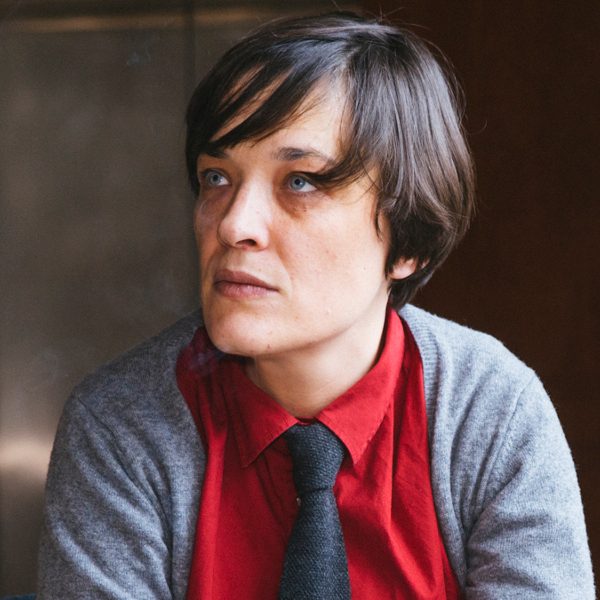Georgia Mavragani

Born in Agrinio in 1978, she moved to Athens in 2001. Mavragani studied at the Department of Primary Education of the University of Patras, the Department of Theatre Studies of the National and Kapodistrian University, Athens, and the preparatory Master’s programme of DasArts in Amsterdam, Netherlands. From 2000 to 2004 she worked as assistant director for several established directors (Yannis Chouvardas, Michael Marmarinos, Yannis Moschos, Vicky Georgiadi, Thodoris Gonis).
Starting in 2004, she has directed numerous productions, including Jean Genet’s The Maids; Bernard-Marie Koltès’ Tabataba; A Long Nostalgic Song (original performance); Haruki Murakami’s On Seeing the 100% Perfect Girl One Beautiful April Morning; Fragile (original performance); The Roof of The Suicide (original performance); Lockjaw (original performance); First-hand: A Performance on Tobacco Workers (original performance); Not Innocent Any More (original performance); Old Age – a choral ode (original performance); a stage adaptation of Robert Musil’s novel The Confusions of Young Törless, translated into Greek by Alexandros Issaris; a stage adaptation of Dimosthenis Papamarkos’ short story collection Giak, and Tennessee Williams’ Suddenly, Last Summer, presented at numerous stages (Amore, Askisis, Poreia, Chora, Epi Kolono, Onassis Cultural Centre, Embros, Athens & Epidaurus Festival, Experimental Stage -1 of the National Theatre of Greece, Porta, and the National Theatre of Northern Greece).
Mavragani teaches acting at the ‘Delos’ Drama School and has presented several dramatic readings featuring her students. Furthermore, she has run acting and performance workshops, featuring professional actors and amateurs, at bios, Mikro Theatre (Agrinio), and Hellenic Cancer Society, investigating the possibilities and techniques of documentary theatre.
WORKSHOP
The function of the Chorus – The case of Oedipus
Cycle A: 2 – 16 July
Narration and representation of collective memory can be tools for approaching and interpreting the Chorus in ancient drama. What is the relationship between collective memory and individual experience? Is it possible to approach tragedy and particularly the Chorus from a personal perspective?
We are all familiar with the story of Oedipus. However, is it possible to experience and even sing this iconic story? And to do so in the most poetic way possible, Sophocles’ way?
The students of Epidaurus Lyceum will come in contact with documentary theatre and collective narrative, and through them experience and articulate the poetics of theatre in the immediacy of the stage.
Moreover, participants will be able to explore the Chorus’ set of collective actions and reactions (seemingly alien to contemporary audiences), drawing on their individual experiences without even realizing it. The workshop aims to unearth the various ways in which even the most impenetrable texts can awaken the potential for a collectiveness, and the ways in which this collectiveness can be expressed.





